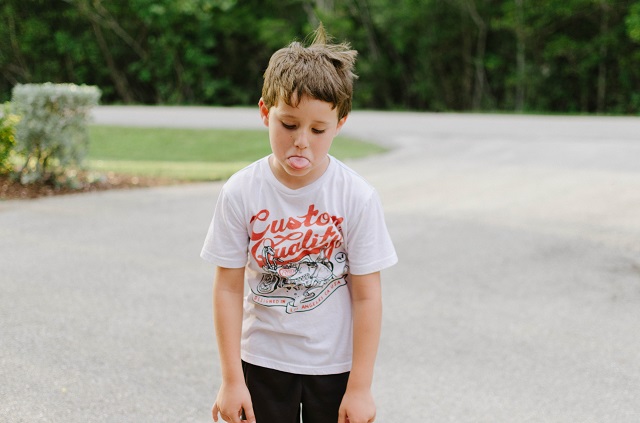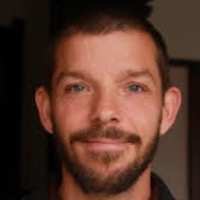
It was a heady time, those first few years of being a parent.
Parenting is busy and hard and challenging enough on a purely practical level, but looking into my child’s eyes, I also felt the weight of the responsibility I now carried.
Becoming a parent was a game-changer. It forced me to come face-to-face with some of my serious shortcomings.
I didn’t anticipate or purposefully lay groundwork for any sort of growth—spiritual or otherwise—here. But it just kinda happened, out of the challenge and responsibility of it.
It forced me to reevaluate everything—who I was and what I wanted. In the end, it forced me to take stock and search out some sort of clarity.
The clarity I wanted didn’t come easily. After all, I had never “learned” parenting, never studied or practised it. I was lost and winging it. So, I started searching for a better way.
I didn’t have any answers, so I started asking some questions. I tried bringing some intention and purpose to what I was doing. This was a good start. In a curious sort of way, I allowed myself to ask questions like:
What should I do in this situation?
What is the right thing to do?
What is the goal here?
The answers did not reveal themselves so readily. These questions led to other questions.
I wanted more than just a piecemeal solution. I didn’t want to be erratic or to settle for running around putting out fires. I was looking for a framework, something more holistic. Spiritually speaking, I was looking for alignment, something that my head and heart could agree upon. And that’s been the upside to all of this. All the questions I was asking of how I wanted to “be” for my son were really what led me to my own personal spiritual alignment.
The bigger questions that came up were almost too big for me to handle. I almost gave up right there. This is what I found myself asking:
What does my child really need, and why?
What is my purpose in this role?
How do I really need to be?
What do I want for my child?
What do I want for the world?
The day-to-day routine of parenting was, for me, inextricably linked to the bigger picture. Asking these bigger questions also had the affect of appealing to my “bigger” self. Unexpectedly, I felt my heart and mind expanding. What’s really important versus what’s really an illusion became clear to me.
How would you sincerely answer the question of what you wanted for the future of the world, your child, and all the other children of the world? When we really think about these questions, all of a sudden, things get real.
I asked, and I received. I believe I found what I was looking for, and the answers to those big questions still inform my actions to this day.
I think I was having a shower, or doing the dishes, or something equally mundane when it came to me. Or, maybe I was pulling my hair out after another failed bedtime. Who knows. But, the answers to my questions came at once, in a flash. It felt profound and important at the time.
I can remember feeling full of awareness. Trying to explain it now seems a little funny. Funny because the answers to my questions were surprisingly simple, even humourously obvious. It turned out the answer to that great mystery was: the best. Ta-da! I wanted the best for my son, for his future, and for the future of the world, full-stop.
Simple, but not so simple. After all, the best is a tall order. And then there is the question of what “best” even means. Well, the best that I felt in that moment was a big best. A bigger best than I had ever felt. I’ve always wanted to raise happy, capable, and contributing members of society. That is still true and fitting. But the best I felt in that moment had less to do with me and what I wanted, and more to do with what was meant for my son.
It had more to do with letting go and trusting. In a sense, it was a feeling of surrender. It felt there was a bigger wisdom at play, or a bigger wisdom that resided within my son, and I could trust it.
This meant that what my child needed more than anything was for me to embrace and accept him for who he was, to empower him to be the truest version of himself that I could. That was my role as a leader.
He needed most to be supported, not steered. He was going to be fine. He really was going to be fine. Actually, not only would he be fine, he would be great. This was indeed how he would be the best he could be. If I could trust this, have patience, and love him for who he was, then…then, I would be in alignment with this greater wisdom. Then, I’d be doing my job. And, here is a nice bit of synergy that follows: If I could help him be his truest self, would this not then contribute to “the best” for the world?
I don’t believe anyone who has been empowered to be his truest self or who has discovered his truest self would give anything less than his best to this world. When we tap into that deep authenticity, magic happens—beautiful, good magic.
This perspective flips our usual understanding on its head. It’s hard to absorb at first, but I’m convinced that if we really want the best for our children, this is the way to achieve it. It took a little while for it to sink in. I still fight against the trusting and the wisdom sometimes. But, then I remind myself it’s not really about me. And if it’s not about us, then what do we do?
How do we go about trusting, empowering, and essentially getting out of the way of our children to allow the truth and wisdom within the to emerge? How do we go about putting this into action? Being a true leader in this regard is, and always will be, about being that which we wish to teach, that which we wish to create.
And then we need to be patient and trust the process. If we want our children to be their best and truest selves, can we be striving for any less than our best and our truest? If we are to lead by example, how must we be? If we want our children to tap into and trust their inner wisdom, what must we do? The answers are self-evident. We cannot do anything else other than strive for our own truth, have patience, and trust the process, if we wish this for our children.
More practically, if I hope for my children to be authentic, happy, kind, strong, and fulfilled, what is my role? How am I to be? If I wish for children to be mind, body, and soul healthy and whole, with no strings attached, what kind of work have I cut out for myself? Again, this seems simple, or at least obvious. But somewhere, at some point, this lesson was lost. These self-evident truths are not so evident or deeply understood anymore.
As parents and leaders, it would be useful to reacquaint ourselves with ideas like these:
If we want happiness and kindness to be present in our children and in this world, we must create loving, kind, and uplifting homes.
If we want our children to be strong, we have to allow them to be strong and model strength ourselves.
If we want our children to be authentic and confident in their truth, we have to value, accept, and respect them for who they are. We can’t dominate and disparage. We have to embrace and empower.
If we want our children to be successful and fulfilled, we need to trust them and their vision, not some idea of who we want them to be. Success is empty if it’s someone else’s success.
If we want peace, we have to have peaceful loving homes.
For some, this is a no-brainer. Wonderful! I’m glad it is. For others, you might feel moved by this idea, but worried about letting go—I understand. You might be thinking that in order to be a good parent, you have to have more control, more influence over the direction and well-being of your child.
Well, I’m here to tell you that there is no better way than this to help your child achieve purposeful direction and robust well-being. Trusting and empowering our children to be the truest versions of themselves has multiplicative implications we almost couldn’t imagine. When children are really allowed and encouraged to be themselves, they grow to become the strongest, kindest, happiest, most fulfilled versions of themselves.
There is nothing to hide, nothing to be ashamed of, no defensiveness or feelings of deficiency. There is nothing to compensate for—just wholeness.
There is an added bonus to this approach for parents. Trusting our children lets us off the hook a bit. Without over managing things, we can relax. We don’t have to know everything or plan for everything. Trusting gives us a sense of freedom and sense of relief.
And, it feels good. It feels right. It feels honest.
I don’t know if my wife and I will totally do this right. I know that we’ll make mistakes along the way, but that’s really what we’re aiming for.
~
Relephant reads:
Why Some Parents & their Children have Great Friendships.
Everything we do as Parents Comes down to This.
~
Author: Drew Tupper

No comments:
Post a Comment